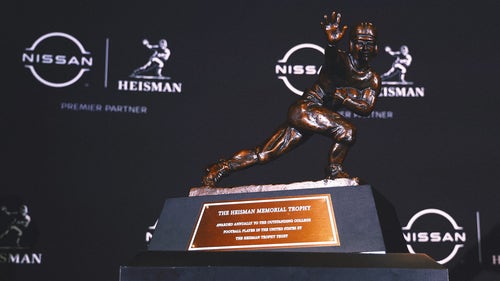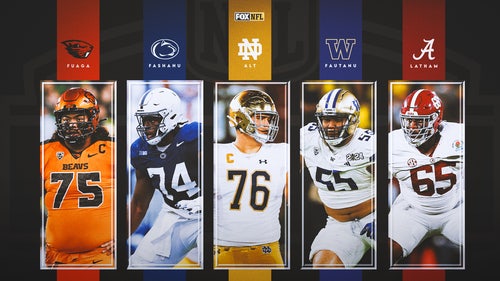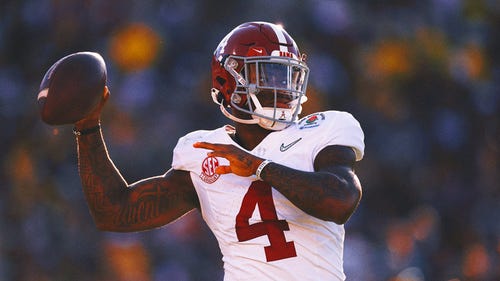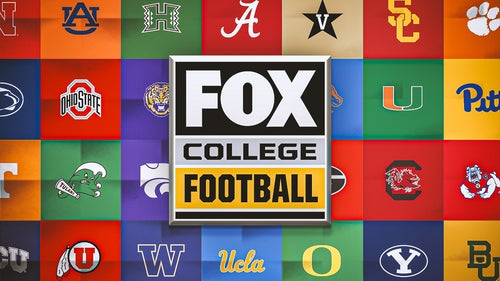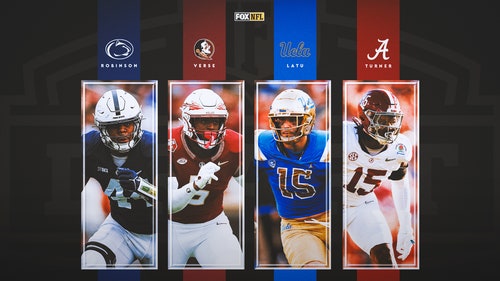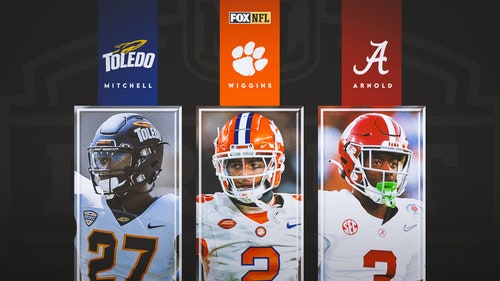
Amid chilling allegations, analyzing the latest Title IX lawsuit against Baylor
The already far-reaching aftermath of the sexual assault scandal at Baylor University expanded on Wednesday as a former Baylor volleyball player sued the university for exhibiting “deliberate indifference” in response to her allegation that she was brutally gang raped by as many as eight football players in February 2012. The lawsuit, Jane Doe v. Baylor University, was filed in the U.S. District Court for the Western District of Texas. This is the same federal court where in January another former Baylor student sued Baylor over an alleged football player gang rape purportedly taking place in April 2013. In this new lawsuit, the plaintiff—using the pseudonym Jane Doe—asserts that she was drugged by football players at a party, kidnapped and then repeatedly raped.
Jane Doe's complaint invokes Title IX, a federal law that, among other things, requires that universities promptly and thoroughly investigate allegations of sexual assault and take steps to prevent sexually hostile environments. Doe demands that the court issue a permanent injunction that would prevent Baylor from enabling its students to commit sexual violence against other students. U.S. District Judge Robert Pitman, whom President Obama nominated to the court in 2014, will preside over the case.

The allegations in Doe's complaint are truly chilling and portray Baylor officials as engaging in unlawful and immoral conduct. Whether the allegations can be proven is, of course, unknown at this time. Baylor will have an opportunity to answer Doe's complaint. In doing so, Baylor will likely offer a very different set of alleged facts.
As this process plays out, the NCAA will monitor the progression of lawsuits filed against Baylor. It remains an open question as to whether the NCAA will punish the university.
Doe's complaint retells a horrific evening of being drugged, kidnapped, detained and gang raped by four Baylor football players.
According to Doe, she and several of her friends went to a party at a football player's off-campus apartment on the evening of Saturday, Feb. 11, 2012. While at the party, Doe recalls consuming several drinks and becoming “very intoxicated.” Further, Doe insists that she and other partygoers believe the football players drugged her. Given her mental state at the time, Doe acknowledges that she doesn't remember certain portions of the evening. Nonetheless, as retold by Doe, one of Doe's friends saw football players repeatedly try to drag her into the apartment bathroom and make various attempts to touch her—all of which, Doe says, prompted her to say “no.”
Doe knew that at least one Baylor football player at the party had targeted her for sexual relations. A day before the party, Doe says, that player kept asking her to “hook up” with him and she told him no each time.

After suffering the abuse and indignity of players grabbing her and trying to drag her, Doe says the night would only get worse. Doe says a football player then physically picked her up and carried her to his car and placed her in it. From there, the player drove her to a location that she does not describe. In that location, Doe recalls being held in a room and lying on her back. While on the room's floor, Doe remembers looking up and seeing glow-in-the-dark stars on the ceiling. Four players, Doe says, then took turns raping her. Afterwards, the players yelled, “Grab her phone! Delete my numbers and texts!”
Doe awoke the next morning in a friend's apartment. She felt horrible and, upon realizing that she had been raped, broke down in tears. Doe also noticed that phone numbers belonging to football players had been deleted from her phone. Doe's friend told her that he had seen football players carrying a young woman around, and he thought it was Doe. Doe did not alert law enforcement about the incident.
In the aftermath of the alleged rape, Doe says her rapists subjected her to severe emotional distress. They did so, Doe explains, by texting her messages saying she “wanted it.” Perhaps as a way of dissuading her from going to the authorities, the players also claimed they took nude photos of her.
Doe told her mother about the incident toward the end of the spring 2012 semester. Her mother then called a Baylor assistant football coach in July 2012. Shortly thereafter they met up in person. During that meeting, Doe's mother told the coach about the incident and the players involved, though the mother would not share her daughter's name. The mother would never hear from that coach again. According to Doe, the assistant coach would later speak with the accused players, who told the coach that they only “fooled around” with Doe in what amounted to “a little bit of playtime.” The coach apparently concluded there was insufficient evidence to believe a sexual assault occurred. Doe says the coach's investigation prompted the players to retaliate against Doe, including by using fake telephone numbers to harass her and her family in text messages.

Doe would remain enrolled at Baylor into 2013. While there, Doe says she continued to experience intimidation and degradation by the football players who she says raped her. Doe says she felt “emotional distress” from sitting in class with them. She also was outraged the players would send her text messages in which they called her “easy.” Doe also found no help from the university. She says she explained what had occurred to a university counselor. Inexplicably, the counselor failed to mention Title IX to Doe and, disturbingly, stressed to Doe that many women do not report sexual assaults.
Doe also describes being the victim of a robbery by football players, who entered her apartment. According to Doe, Waco Police declined to charge the players with a crime. Instead, the police only told the players—who claimed that Doe had stolen their dog—to return what they had stolen from Doe's apartment. The burglary, however, led to a meeting between Doe and Baylor head coach Art Briles. Doe says the meeting proved worthless. Doe also told her volleyball coach about the alleged rape. The volleyball coach then told Briles, who, according to Doe, essentially blamed the victim while also admitting his own players tended to engage in wrongdoing. “Those are some bad dudes,” Doe quotes Briles as telling the volleyball coach, “Why was she around those guys?”

Doe would withdraw from Baylor in May 2013. Her last alleged indignity nonetheless occurred thereafter. In fall 2013, Doe claims that she visited a friend at Baylor and while doing so told the football team's chaplain about the incident. The chaplain, Doe contends, did nothing with the information.
Despite telling multiple Baylor employees about the incident, none of those employees reported the incident to Baylor's Office of Judicial Affairs. This office has oversight for records and information related to student conduct violations, including those related to sexual offenses and enforcement of Title IX .
Doe's lawsuit is premised on Title IX of the Education Amendments of 1972, a federal law that prohibits federally funded schools from discriminating on the basis of sex. While Title IX is often discussed in the college sports context of equal opportunities for male and female student athletes, it also plays a crucial role in the prevention and reporting of sexual assaults that involve college students. Schools that fail to prevent student-on-student sexual violence can violate Title IX in different circumstances, including when learning of a serious allegation and passively responding to it. Generally speaking, colleges are expected to take steps that address specific acts of violence and dismantle the kind of hostile environment that facilitates those acts.
Doe offers a logical depiction of why, if her retelling of facts proves accurate, she would have a compelling argument under Title IX.

As detailed above, Doe insists that she was brutally assaulted and repeatedly harassed. In Doe's view, Baylor failed to adopt procedural safeguards that would have prevented such misconduct. Doe finds the absence of procedures particularly disturbing given that other women had been raped or allegedly raped by football players prior to the time of her incident. The university should have been on notice, Doe maintains.
Doe also charges that she was placed in a hostile educational environment when the university declined to meaningfully respond to her allegations. Doe depicts Baylor officials as obstructing Doe's attempts to gain justice in order to safeguard violent football players.
Anytime a lawsuit is filed, and particularly one involving extremely disturbing claims, it is important to remember that allegations must be proved in court. Doe offers numerous details about what she says occurred. In doing so, Doe acknowledges that certain details derive from comments made by witnesses, rather than through her first-hand knowledge. Further, due to being inebriated and/or drugged on the night of the incident, Doe acknowledges that she is unable to recall some facts. As the litigation process plays out, Baylor will likely challenge Doe on certain alleged facts. Along those lines, Baylor will attempt to debunk damaging details about the school's alleged “indifference” as either untrue or perhaps misremembered due to the passage of years.
In addition to claiming that Doe's narrative is inaccurate or unreliable, Baylor will likely assert that the university lacked the capacity to investigate certain aspects of Doe's allegations. For instance, Baylor might highlight that the incident occurred off campus and thus outside the jurisdiction of the campus police. To be clear, Title IX's reporting and investigative requirements govern off-campus conduct involving students. A university can nonetheless argue that an incident occurring off campus impacts its ability to conduct fact-finding.

Baylor is also poised to contend that Doe simply waited too long to file a lawsuit. Normally in Texas a person has two years to file a Title IX lawsuit. Doe's incident and its aftermath occurred in 2012 and 2013. Therefore, Doe arguably waived her right to sue in 2015.
Doe's complaint anticipates this potential timing hurdle by stressing that university officials discouraged her from learning of her legal rights. Doe also insists that until May 26, 2016, she had no reason to know that the Office of Judicial Affairs never learned of her incident. On that date, Baylor released information from an investigation conducted by Pepper Hamilton into the broader scandal at Baylor. It remains to be seen whether the court will “toll” or extend the statute of limitations for Doe on grounds that Baylor concealed crucial information from her that would have influenced whether she filed a lawsuit.
Baylor has changed a great deal in the aftermath of the sexual assault scandal. Baylor has a new university president, athletic director and football coaching staff. To be sure, the new persons in charge are obligated to defend the university's fiduciary interests. Along those lines, Baylor officials might worry that settling existing lawsuits would incentivize other persons to sue in hopes of obtaining the same result.
Still, the new persons running Baylor want to turn the page. They are also not obligated to defend the fired officials who failed to stop football players from committing sexual misconduct—or who, worse yet, covered up misconduct. This dynamic might make Baylor more inclined to settle lawsuits filed by victims and alleged victims. Settlements would help the university move to a new phase in its history under new leadership.

Baylor is also incentivized to settle given what might surface during pretrial discovery. The women who are suing Baylor have leveled deeply distributing claims, not only about football players but also about school administrators who allegedly turned a blind eye to victims. The longer a case goes on, the more likely that damaging evidence and witness testimony will appear. If Baylor seeks closure from the scandal, waging lengthy legal battles is probably not the best path.
Baylor is also sensitive to the possibility of NCAA intervention. In February, ESPN's Outside the Lines reported that NCAA enforcement staff had interviewed various Baylor employees about the scandal. It stands to reason that as more damaging information emerges, the NCAA will be more likely to act. Granted, the NCAA is aware of the recent past. It received substantial criticism for sanctioning Penn State University, with critics contending that the Jerry Sandusky scandal was a criminal matter and not an athletic one. The NCAA, however, might regard the Baylor scandal as more of a sports controversy given the involvement of football players. With that concern in mind, Baylor has another reason to view settling lawsuits as a sensible choice.
Michael McCann is SI's legal analyst. He is also an attorney and a tenured law professor at the University of New Hampshire School of Law.






































































































































